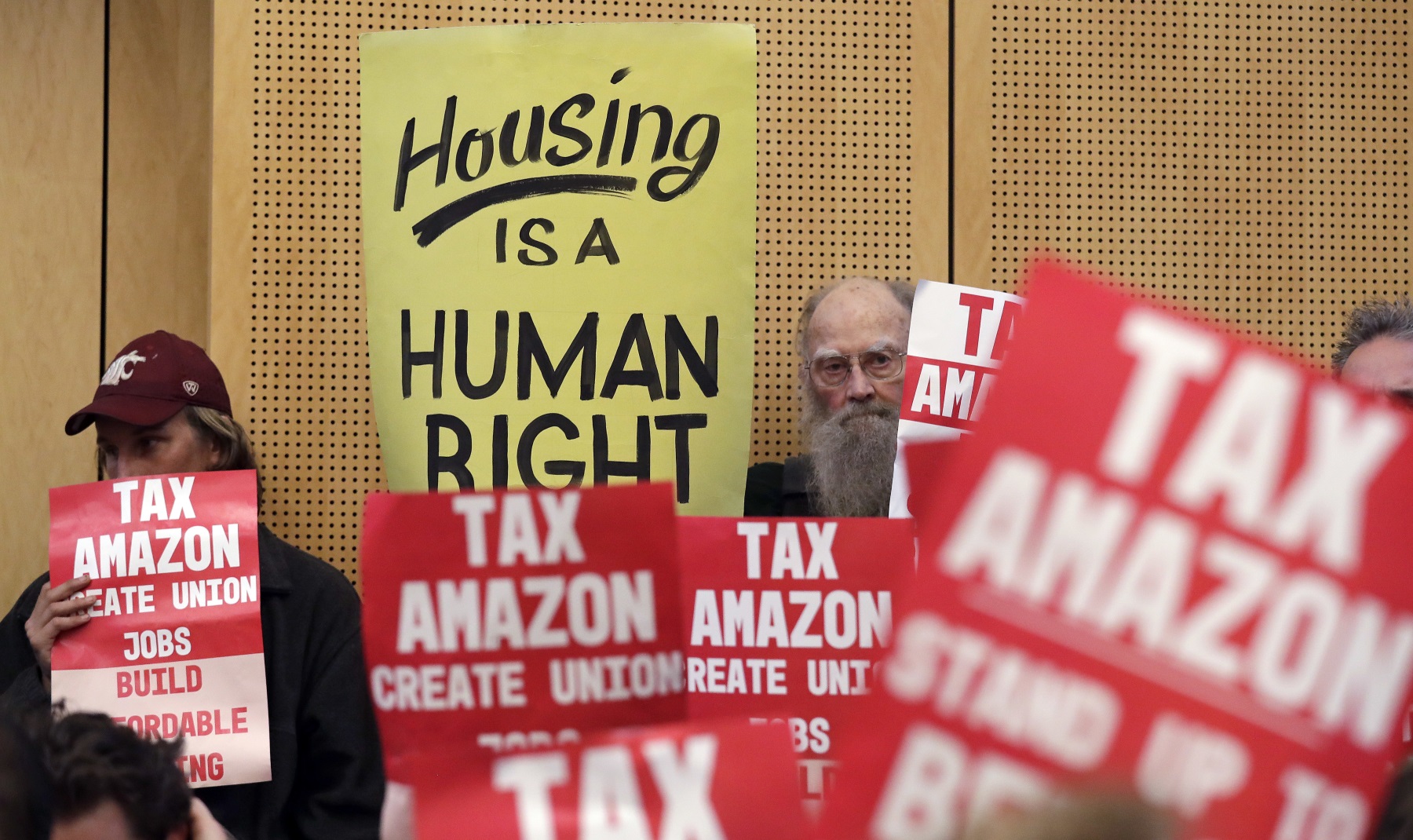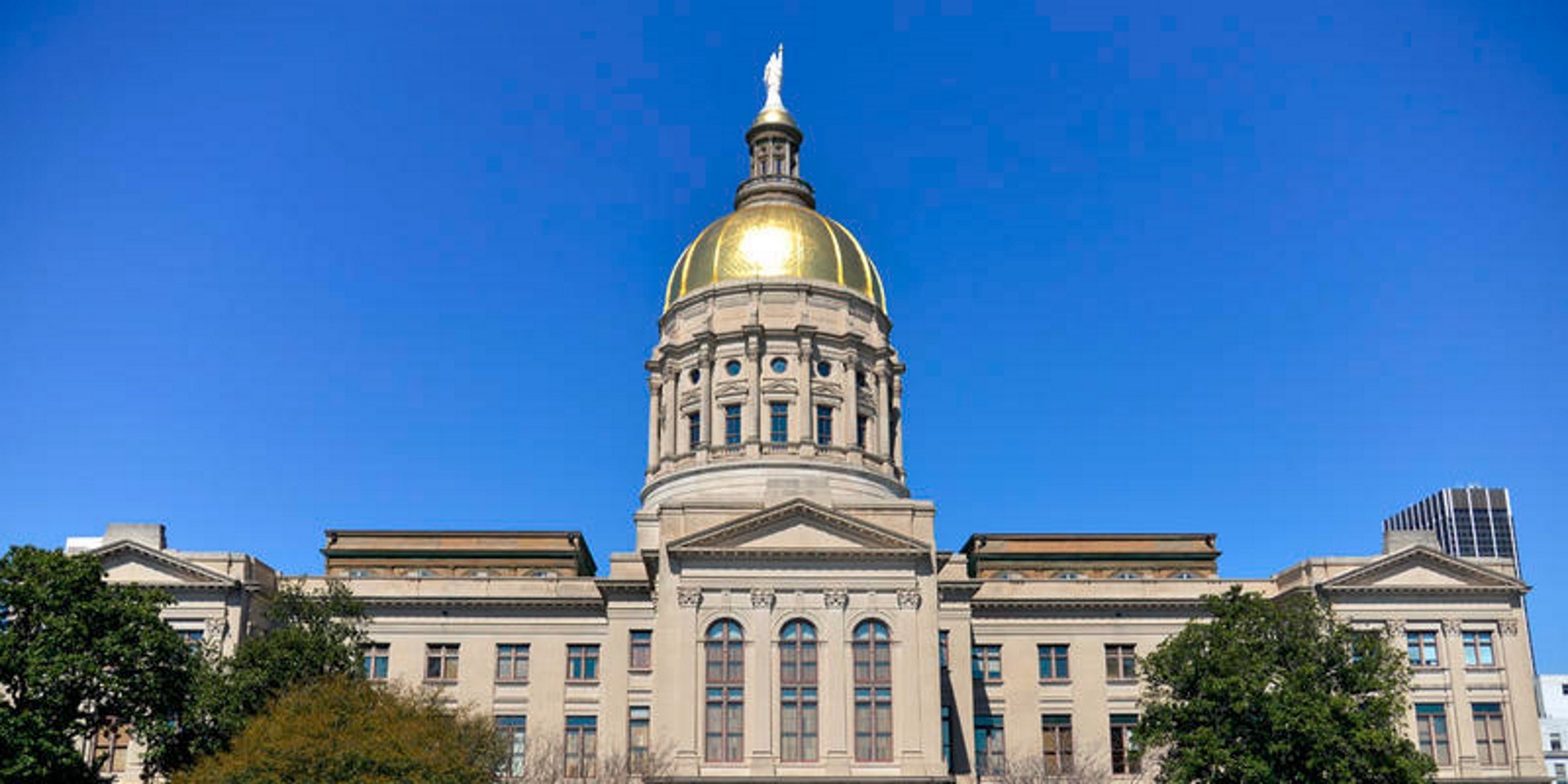Amid Bids For Amazon’s HQ2, Questions About The Cost Of Incentives

In May at a Seattle City Council meeting, members of the public expressed their views about a tax on large businesses such as Amazon that would have raised millions for affordable housing and homelessness. The corporate tax was repealed. Corporations can hold a lot of influence with local governments, and Georgia and other states may offer incentive packages to attract businesses, like the race to get Amazon’s second headquarters.
Elaine Thompson / Associated Press file
This week, the Seattle City Council repealed a corporate tax, after weeks of pressure from its hometown giant: Amazon. The tax would have raised millions for affordable housing and homelessness.
The vote was a reminder that corporations can hold a lot of influence with local governments.
In the cutthroat race to lure Amazon’s second headquarters, Georgia’s bid is expected to include massive tax breaks and incentives. So will other states’ bids, like Maryland’s. Its incentive package for Amazon tops $8 billion.
Exactly how much Georgia will offer remains a secret. Gov. Nathan Deal has said that if Amazon picks Georgia, the Legislature would hold a special session. But that would be on an already finalized package.
“I’ve always considered incentive packages like this governing in the dark,” said William Perry, who runs the nonprofit Georgia Ethics Watchdogs.
He said that’s the real problem: the secrecy.
“And unfortunately in Georgia, there’s no law that requires follow-up once these packages are awarded to see if we actually receive benefit from it,” he said.
Perry said while he hopes Georgia gets the Amazon bid, “I’m also hopeful that the package makes sense because you don’t want to give away the farm if it’s not going to benefit your community. And I fear all too often we’re focused more on the prize that’s being offered than the benefit that actually comes from it.”
A Brookings Institution study by Duke economist Aaron Chatteraji released Wednesday found that massive incentive packages often don’t work out well.
“It’s not like having, for example, HQ2 locate in someone’s city would be bad for them necessarily, it’s more that whoever wins a bidding process is likely to overpay for them,” said Jay Shambaugh, the director of the Hamilton Project, which put together the study.
He said there are other side effects, too.
“If we keep giving these incentives to bigger and bigger and pre-existing firms, it makes it harder to get new firms into the economy. And that’s a real worry.”
But that is not how state Rep. Terry Rogers sees it. He’s on the House Economic Development and Tourism Committee. He said Georgia must stay competitive with other states.
“Remaining competitive is composed of many different components, and one of which is the possibility of tax credits. I think the majority of tax credits need to be looked at on their own merits, the type of jobs they’re bringing in, the amount of revenue that’s going to be produced and the economic impact.”
He said he trusts the Department of Economic Development to vet each project individually.
When they are structured well, he said, incentives can work. He pointed to the film tax credit that has spurred the growth of a whole new industry in Georgia.
“There’s $9.5 billion worth of economic impact from the film industry, so that’s something that has more than paid for itself,” he said. “So, I guess you could say there’s good sides and there’s bad sides, but you have to look at the whole overall picture in order to make a decision.”
Betty McIntosh is a senior managing director at Cushman & Wakefield’s business incentives practice in Atlanta. She said in her experience, incentives can make or break a deal.
However, she said she thinks individual economic impact studies often prove out that incentives have, in fact, paid off for taxpayers.
Amazon plans to make a decision on its second headquarters this year.








